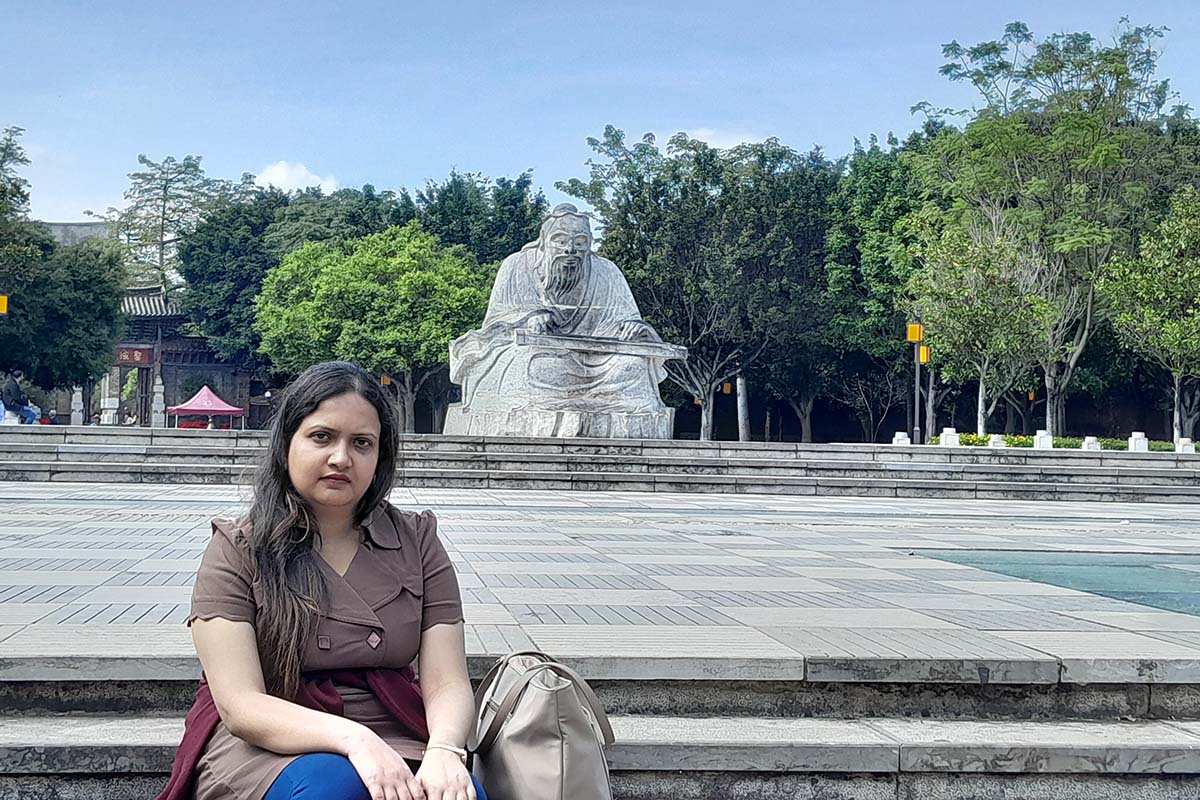Youth in Leadership: Perspectives on the Africa School of Governance
December 15by Aurore Teta Ufitiwabo
Established in October and based in Kigali, Rwanda, the Africa School of Governance (ASG) aspires to redefine leadership across the continent by offering excellent education in public policy, innovative research, and dynamic policy engagement. Designed to address Africa’s unique challenges, ASG has been warmly received by the public, particularly among young people eager for leadership development opportunities.
Here is what some of them had to say about the initiative and its potential impact on their careers and Africa’s future.
Lavie Mutanganshuro, a Master’s student in International Relations, views ASG as a crucial step toward building a new generation of leaders. “If you look at the skills this school is expected to provide—from leadership to public policy—these are essential for young people to contribute effectively to Africa’s development,” he noted.
Mutanganshuro emphasized that leadership training institutions are scarce across the continent, and those that exist often offer these skills as secondary programs. He believes ASG fills this gap. “This school will benefit aspiring leaders by providing focused knowledge and skills critical for Africa’s progress,” he said.
He also identified challenges young people face in accessing leadership training, particularly the lack of affordable institutions. “Many programs are expensive, limiting access for most youth. By increasing the number of leadership training institutions and ensuring affordability, more young leaders will have the opportunity to enroll and make meaningful contributions,” he explained.
Thomas Mwesigye, a Commissioner at the Rwanda National Youth Council and an advocate for youth leadership, expressed excitement about ASG’s practical approach. “This initiative offers leadership training tailored to our continent’s unique socio-economic and political challenges. It bridges the gap between theory and practice through experiential learning and problem-solving,” he stated.
Mwesigye highlighted barriers such as limited mentorship opportunities, exclusion from decision-making spaces, and financial constraints. “Inclusive policies prioritizing youth participation, mentorship programs, and accessible training platforms like ASG will empower young leaders,” he suggested.
He believes that such initiatives can cultivate innovative and ethical leaders who will drive sustainable development and governance reform. “As young leaders, we are eager to benefit from this transformative opportunity,” Mwesigye concluded.
For aspiring leader Alice Kagina, ASG represents an exciting and much-needed resource for African youth. “I was thrilled when the school was announced. Learning from expert leaders and a curriculum designed for Africa’s specific needs is a privilege I would greatly value,” she said.
Kagina sees ASG as a solution to many of the continent’s governance challenges, from corruption and political instability to overdependence on external models. “The school will train servant leaders with the mindset, skills, and capacity to unlock Africa’s potential in human capital, technology, economic prosperity, and peace,” she stated.
She pointed to financial constraints and the limited availability of quality leadership education as significant hurdles. “Many young Africans can’t afford high-value education, and leadership training isn’t widely accessible. Curricula across Africa often fail to delve into the leadership expertise we need,” she added.
Shyaka Jesse Rayson, Country Coordinator at Youth Impact Mission, emphasized that poor leadership is at the root of many societal challenges. “As John C. Maxwell says, everything rises and falls on leadership. A society can’t grow beyond the character of its leaders,” he said.
Shyaka welcomed ASG as an intentional effort to equip African youth with specialized knowledge in leadership and governance. “Too often, leadership programs are shallow and lack depth. ASG promises to offer the practical tools and training necessary to transform lives and communities,” he explained.
He identified misconceptions about leadership—such as it being limited to the humanities—as a barrier, along with financial constraints. “We need scholarships for passionate leaders, exchange programs to learn from others, and more dialogues to reshape how we perceive leadership,” he suggested.






